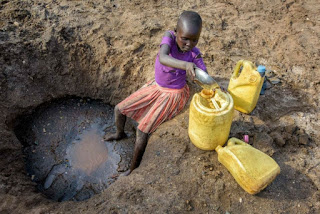Gender Issues Stemming from the Water Crisis
Recently I have had the opportunity to reconnect with a global health professor from USC, Dr. Heather Wipfli. Dr. Wipfli has recently returned from a global health trip to Uganda where she collects data on the lifestyles of communities and studies the determinants of health that affect the communities’ residents. Our most recent conversation was centered around the current water crisis that is affecting millions of people worldwide especially in rural African areas. It is especially important to understand the fact that although the water crisis affects everyone, it disproportionately affects women and girls. This crisis creates many more issues that we must be aware of. For example, due to gender norms in many countries, women and young girls are responsible for collecting water, which takes time away from work, school, and caring for their family. This also puts them at a much higher risk of contracting waterborne diseases such as cholera or schistosomiasis, as well as allowing for potentially deadly physical assault or rape as they travel miles to retrieve water for their families. The lack of clean water and sanitation facilities trap women and girls in a cycle of poverty as they are unable to receive an education or start businesses, which is why it has been recognized by the UN as a violation of their human rights. However, even though the UN has recognized the action of walking miles a day for hours at a time as a violation of human rights, water is a basic necessity and someone must retrieve it. Unfortunately, as a result of cultural norms and tradition, the chances of men collecting water are slim to none. On the other hand, access to clean water has been improved and increased; however, access to sanitation has yet to be improved.



Comments
Post a Comment